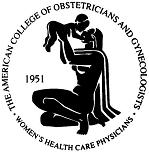ACOG clarifications on HPV test vis-à-vis Pap Smears
 With the New England Journal of Medicine's last week published study about a newer DNA test for human papillomavirus (HPV) being more effective in detecting cervical cancer than the conventional Pap Smears - which involves a small scraping of cells from the cervix- a lot of questions have arisen about whether the HPV test will substitute Pap Smears! As women suffering from cervical cancer are looking for further details and elaborations about the HPV test, some of the pertinent clarifications on HPV test vis-a-vis Pap Smears have come from the American College of Obstetricians and Gynecologists (ACOG).
With the New England Journal of Medicine's last week published study about a newer DNA test for human papillomavirus (HPV) being more effective in detecting cervical cancer than the conventional Pap Smears - which involves a small scraping of cells from the cervix- a lot of questions have arisen about whether the HPV test will substitute Pap Smears! As women suffering from cervical cancer are looking for further details and elaborations about the HPV test, some of the pertinent clarifications on HPV test vis-a-vis Pap Smears have come from the American College of Obstetricians and Gynecologists (ACOG).
According to ACOG's current recommendations, yearly Pap screens are helpful in detecting cervical cancer in young women aged 21 or those who have been having sex for nearly three years, whichever of the two conditions comes earlier.
For women aged 30 years and above, with three negative Pap results, ACOG puts forth three alternatives to choose from, namely - continuing with yearly Pap testing; or switching over to screening every two or three years; or adding screening with an HPV-DNA test.
Kenneth Noller, ex-ACOG President and Chairperson of the Department of Obstetrics and Gynecology at Tufts Medical Center, said that both HPV and Pap Smears have nearly the same results when used repetitively over some years, though extensive HPV testing in younger women group may lead to "unnecessary testing, treatment, and worry!"